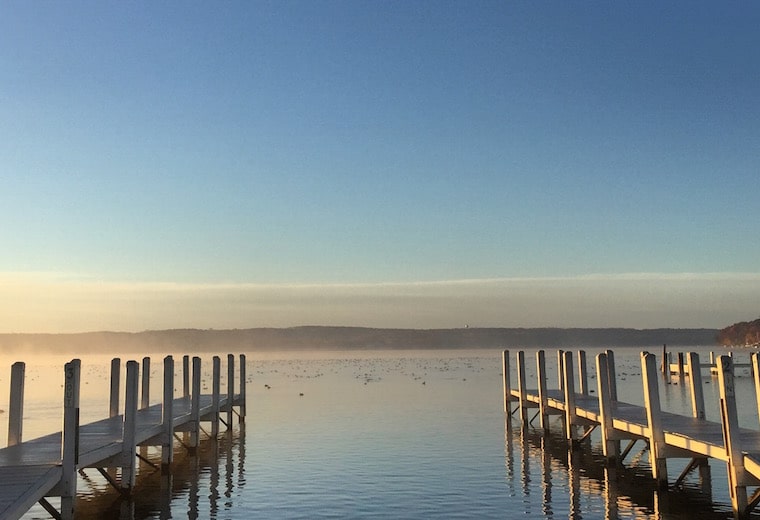If no one had to work in a physical office with co-workers and a communal CLIFF BAR dispenser, then it made good sense that people might move to Whitefish, Montana. You get to keep your software job in San Francisco but commune with nature (and dodge the falling ash). Your housing dollar was stronger, your suntan deeper, your hours on the slopes, more. Work From Home was a boon for Whitefish and for Boise and for dumb little towns in parts of Montana and Idaho and Colorado alike. Those markets rejoiced in the new normal, software bros all around rejoiced in their unexpected, delicious, flat brimming freedom.
But Work From Home was also a benefit to Lake Geneva, as we all know by now. If you could now spend summer at the lake and maybe head into work one or two days a week to make sure the scant few people in the office knew that you were still employed by them, or employing them, then what a great place to spend those sunny days. If you took a Tuesday morning boat ride around the lake in the summer of 2021, you would have found many wealth managers and hedge fund directors and private equity partners busy on their computers, while sitting in their lakeside screened-in porches. Work From Home was truly a blessing to all vacation home markets, both near and far.
Data this week from Kastle Systems on the office occupancy trends in 10 major cities shows that among those 10 large metro areas Chicago leads the group for the Highest Occupied Days of the Week. The return to office rates vary, with Chicago’s highest day of the week showing a 68.7% occupancy rate, and the lowest occupied day of the week posting an anemic 30.1% occupancy rate. Most metro areas are showing a slow increase in office occupancy rates, although San Francisco, Philadelphia, and San Jose are all lagging the broader group. To be fair, if I had to work in any of those cities I probably wouldn’t want to go to work, either. But alas, the trend shows one thing rather clearly, and that is a return to the office. If this is the trend for the month of June, we can only surmise that the October occupancy rates will be dramatically higher still. Whitefish and the rest of the hard to access mountain towns, please brace for impact.
If Work From Wherever was a major catalyst for the dramatic run up in vacation home prices, then it must be true that Work From The Office Like We Always Used To must be a negative for those same markets. If you were able to spend all year dallying about on your computer from a granola-based coffee shop in Telluride, then that vacation home you bought there and leveraged with 3% debt made some good sense. But if your office is now in Manhattan or Chicago or God forbid, Miami, then just how often are you going to get to that Telluride condo for which you paid 30% over the ask and 70% over what the seller had paid 18 months prior?
In this return to normalcy there is a very obvious truth. Vacation home markets in geographic advantageous locations will continue to shine, as those folks who might have to work three or four days per week in their urban offices can still enjoy their vacation homes with ease. If you have to work Monday-Wednsday, you can drive to Lake Geneva on Wednesday evening and enjoy a very long, very pleasant lake-side weekend. But if you have to do the same schedule, will you really jump on a plane to Kalispell Wednesday night? I contend you will not. And even if you said you might, you really won’t. Because your kids are still in summer baseball and football practice starts in early August and who the hell thought we’d just meander about from our mountain side fractional ownership forever without some sort of reset? Not me, and probably not you. That’s why Lake Geneva wins yet again. Work From Home? We win. Work From Work? We still win. See you around the lake.

